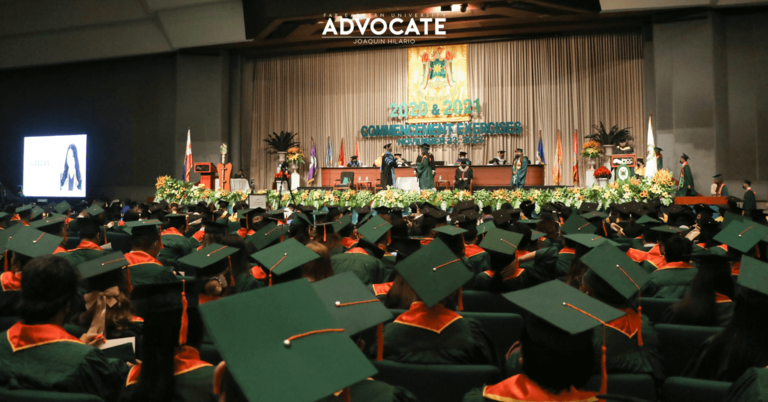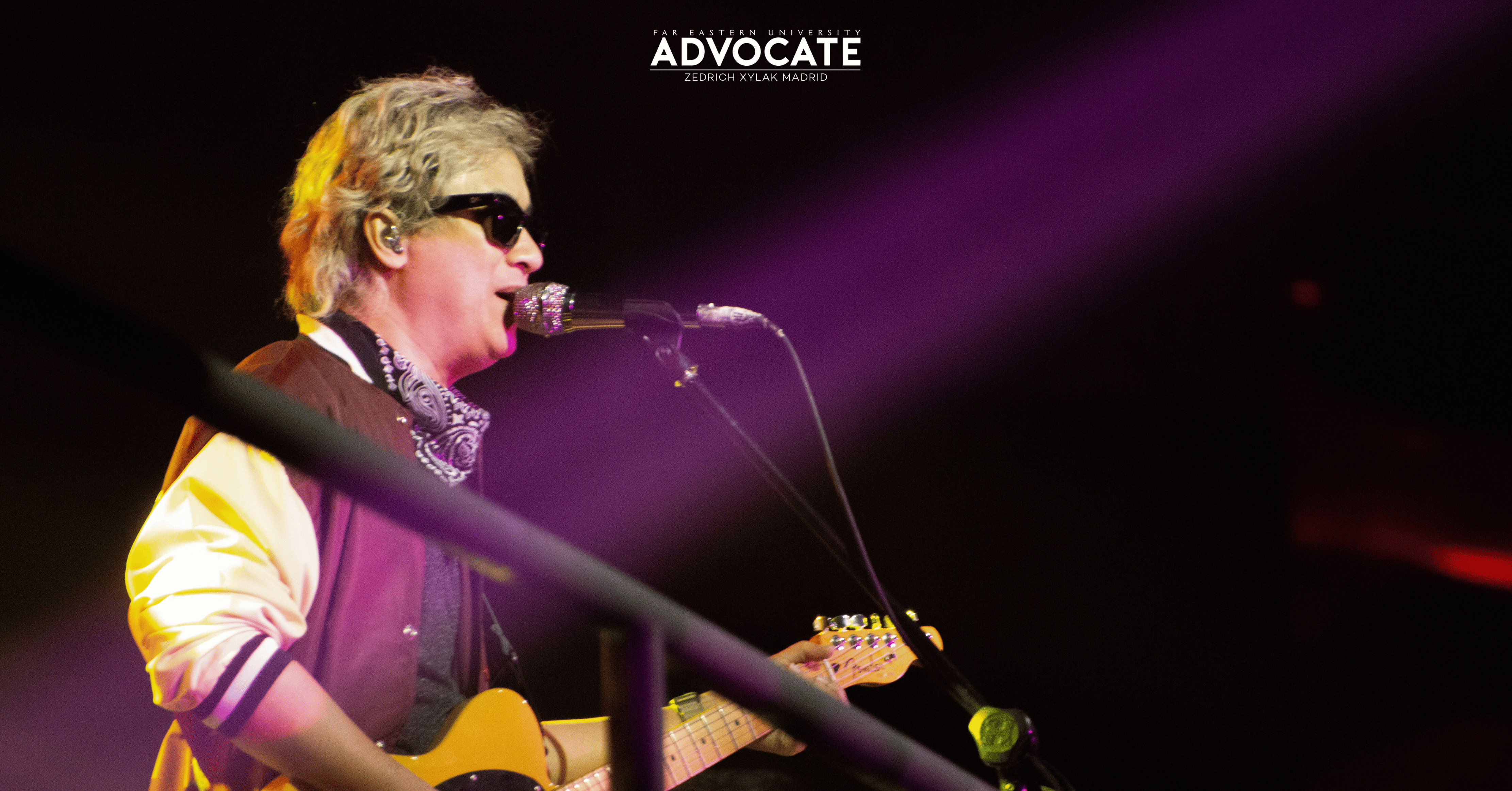
FEU’s former junior football MVP passes away
- June 07, 2021 05:30
FEU Advocate
June 24, 2025 09:00

By Franzine Aaliyah B. Hicana & Julliane Nicole B. Labinghisa
In an age of shrinking faith in politics and its institutions, Dr. Reynold Agnes stands exactly where he has always believed change begins—in the classroom. Now elected president of the Philippine Political Science Association (PPSA), the longtime Far Eastern University (FEU) educator carries his work beyond campus, believing political hope is not dead, it is taught, nurtured and lived by educators who dare to lead.
Dr. Agnes has long been a familiar figure at FEU. A seasoned educator and former chair of the Political Science Department, he is known for his calm presence in the classroom and deep commitment to shaping students into socially aware citizens.
Starting July 1, he will take on a new chapter in his journey beyond the University as he assumes the presidency in PPSA—the country’s only professional organization that brings together political scientists, specifically scholars, educators, researchers, and practitioners in advancing the field through research and public engagement.
In an interview with FEU Advocate, Dr. Agnes shared that the role of being the PPSA president is not about prestige, but about duty.
“I wasn’t expecting to become the president of PPSA. It wasn’t a dream, you know. I was just a fan of ‘yung mga political scientists natin kasi I want to see them. I’m reading their works and I share their works to my students,” Agnes expressed.
But now, he finds himself at the helm of an organization that plays a crucial role in shaping political discourse in the country.
Dr. Agnes is mindful of the responsibility that comes with the title. For him, being elected with the highest title is not about being the most accomplished, but about earning the trust of peers in a highly respected academic community.
“The PPSA is the only professional organization of political scientists in the Philippines, and alam mo 'yung mga leading political scientists of the country are members of this political organization. So being the president does not mean you are the best, it’s more of trust and obligation,” he said.
Lessons beyond the lecture hall
Dr. Agnes’ path to the PPSA presidency began more than a decade ago, rooted in academic leadership and a consistent pursuit of learning.
When he became the chair of the FEU Political Science Department in 2010, he moved quickly to professionalize the unit, starting by affiliating the department with established professional organizations.
“The first thing I did was to look for ‘yung professional organizations para maging institutional member ang Department of Political Science,” he recalled.
That same year, he joined PPSA as an individual member. He believed that staying relevant in the field meant stepping outside the classroom and into broader academic circles.
For Dr. Agnes, joining professional organizations like the PPSA was not just optional, it was a responsibility tied to his role as an educator.
“As teachers, it is our duty and responsibility din na kailangan i-continue ang ating education. So with this in mind, I need to join ‘yung mga professional organizations like PPSA, ‘pag nagkaroon tayo ng networks, nadadagdagan ang ating kaalaman (As teachers, it is also our duty and responsibility to continue our education. So with this in mind, I need to join professional organizations like PPSA. When we build networks, our knowledge grows),” the professor explained.
It was through years of active engagement, presenting in conferences, leading projects, and maintaining a strong presence in political science circles that Dr. Agnes rose through the ranks from his prior election as the PPSA NCR Representative in 2020.
“I voluntarily joined PPSA, and siguro because of my active participation... I was elected as PPSA NCR representative in 2020. After that, I wasn’t expecting them to vote for me to the board of trustees, surprise [surprisingly], I was elected as president,” he said.
For him, the tasks ahead are clear—but also heavy.
“To me, teaching... is like a public service. When you accept a position like this, you have tasks to do, responsibilities, obligations, that would require you to forget yourself in favor of the obligation that you have accepted,” Dr. Agnes asserted.
Leadership and responsibilities
Dr. Agnes believes leadership thrives on participation, whether in the classrooms or meeting halls, collaboration leads to stronger outcomes.
In achieving student-centered learning, he urges his students to maximize their potential, to eventually become their own best teachers.
“You ask questions, tapos students talk and discover what they’re supposed to discover and understand what they are supposed to understand, thereby making themselves as their own best teachers,” the incoming president highlighted.
Similar to a participative environment created in classrooms, leading a professional organization upholds the same principles, maximizing knowledge from field professionals to create a coherent outlook that leads to smart decisions.
“Nandiyan ‘yung the best na mga consultants, so kailangan i-consult mo lagi sila sa mga tough decisions that you are going to make (The organization has the best consultants, so you have to always consult with them about the tough decisions that you are going to make),” Dr. Agnes said.
Leadership does not only come with titles but also responsibilities that require one to show up and have the urgency to answer the calls of their profession, not only confined within their titles, but also extended to their social obligations.
Thus, in answering the calls of leadership, Dr. Agnes actively encourages his students to be part of the change that is collectively strived for by many and should be participated in for change.
“If you want to make politics good, then you join politics. Ako , I usually encourage my students to run for office… Kasi we cannot clean politics, we cannot make it good unless good people join politics,” he shared.
Political misconceptions and social challenges
Philippine politics is often labeled as “dirty,” a misconception that Dr. Agnes wants to challenge.
He argues that politics, at its core, is meant to resolve the people’s differing needs—making it inherently good.
“Ang politika, ang intention ng politics is to resolve conflicts so that is—ang ganda ng politika (Politics, the intention of it is to resolve conflicts—politics is good),” he explained.
However, politics becomes flawed due to the imperfection of humanity. Thus, electing individuals who can deliver its goodness is necessary.
“If we want to make politics good, then we have to elect good people. We have to elect morally upright people. And ‘yung morally upright people na sinasabi natin are those candidates who can say no to corruption,” the professor added.
In making smart decisions and electing officials, Dr. Agnes emphasized the critical role of educational institutions in breaking the misconception of politics being dirty.
He stressed that change does not come on its own—it must be pursued and acted upon, therefore, individuals should be smarter in electing officials.
Moreover, Agnes highlighted that participation comes in various forms such as watching the news, participating in debates and discussions, and combating fake news in social media especially with the prevalence of artificial intelligence.
“Dapat ‘yung mga estudyante—ang mga Pilipino in general, ay maging technologically advanced. And when I say technologically advanced, they must know how to detect ‘yung totoo, hindi ‘yung fake (they must know how to detect the truth, not the fake),” he shared.
Dr. Agnes urged the Tamaraw community to engage in real-world issues, not just academic ones.
Forthwith, for the people
The impeachment of Vice President Sara Duterte is one pressing issue that every Filipino citizen should pay attention to, asserted by the incoming PPSA President.
Despite claims that the impeachment is politically motivated, Agnes insisted that it is rooted in the will of the people and the Constitution that is for the general public.
Additionally, Dr. Agnes discussed that according to the frameworks of the Constitution and as defined by the commissioners who authored it, ‘forthwith’—something whose meaning is argued upon by the Senate—means to immediately proceed with the impeachment.
“Sinasabi nila [commissioners] na ang (The commissioners are saying that the) intention is agad-agad (immediate), so, that’s the meaning. The meaning of forthwith must be taken from the intention of the frameworks of the Constitution,” the professor furthered.
PPSA, in its statement signed by their board of trustees last June 6, urged the Senate to fulfill its constitutional mandate and act upon the impeachment trial with much urgency.
“The PPSA only wants the Senate to act on it kasi that is the mandate of the constitution—forthwith, that’s the mandate of the constitution,” he added.
Moreover, the professor stressed the urgency of answering the calls and demands of the Constitution regarding the impeachment.
“Ang impeachment ay demand ng Constitution, demand ng tao, because the Filipino people wanted to know the truth… Hindi tayo nangdya-judge dito kung sino ang tama at mali (The impeachment is a demand by the Constitution, by the Filipino people because they want to know the truth. We are not judging here on who’s right and wrong),” he expressed.
Trust is a foundation in a democratic nation and when undermined, the legitimacy of both the institution and democracy becomes doubtful.
“‘Pag may pagdududa ka sa desisyon ng Senado, pagdududahan mo ‘yung institusyon. Now when you doubt this institution—democratic institution—‘yung democracy in its entirety becomes kaduda-duda (When there is something to doubt in the decision of the Senate, you’ll doubt the institution. Now when you doubt this institution—democratic institution—democracy in its entirety becomes doubtful),” Dr. Agnes stressed.
Moreover, he mentioned that it is unhealthy for the people living in democracy to doubt democracy itself.
Once said trust begins to crumble, so will the strength of the institutions meant to protect it. However, rebuilding that trust doesn't only depend on laws or leaders—it begins with people who are willing to engage, ask questions, and take part in shaping the system. This is where the role of educators, like Dr. Agnes, becomes even more important.
More than a title or position, Dr. Reynold Agnes embodies a kind of politics rooted in practice, one that listens, engages, and educates. His journey from department chair to PPSA president shows that the work of democracy does not end at the ballot or in policy debates. It lives in the everyday: in honest conversations, in critical classrooms, and in the courage to keep showing up.
(Photo Courtesy of Reynold Agnes)









